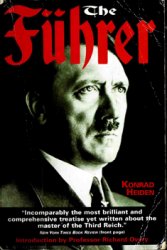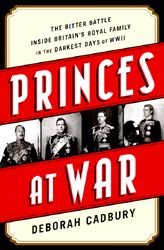In organizing their combined effort, the British and the
Americans achieved an unprecedented degree of cooperation.
The war effort in Britain was officially presided over by a reduced
war cabinet, whereas Churchill assumed the major responsibility
with the common consent of his colleagues who recognized his
inexhaustable energy and his spirit of invention. The chiefs of
staff formulated plans based on the Prime Minister's recommendations;
then the Prime Minister took the final decision.
Constitutionally the same system was followed in America, except
that President Roosevelt had to pav greater attention to
public opinion. Although Roosevelt and Churchill were very different
in character they shared a common attitude towards the
importance of their respective roles and duties. They cemented
a close friendship which was never shaken bv differences of
opinion. They communicated regularly with each other by cables
between Washington and London. By this means decisions could
be taken jointly. The combined chiefs of staff were set up in
Washington to draft plans and execute decisions. Their common
language did much to facilitate work and to enhance mutual understanding.
Cooperation lasted until the end of the war. The
British and the Americans did not always agree on strategy or on
the future of the world. There were certainly squabbles, but they
always managed to reach an agreement.
The two heads of state spelled out their collective war aims in
a formal document which was drawn up before the United States
entered the war. It was called the Atlantic Charter. All the governments
which fought against Germany approved its terms.
The Charter affirmed the rights of individuals and the need for
cooperation during and after the war. At a meeting at Casablanca
in January 1943 Roosevelt and Churchill reached another very
important decision concerning their enemies. Although they
declared that they were not fighting against the people of Italy,
Germany and Japan, but against their governments and their
corrupt leaders, they decided, on Roosevelt's suggestion, that no
peace would be negotiated unless the enemy acknowledged and
conceded defeat in an 'unconditional surrender'. This formula
closed the door to possible compromises, but it showed the
enemy the energy and fierce resolution with which the Allies were
fighting and it gave encouragement to people in occupied countries.




 World History
World History









